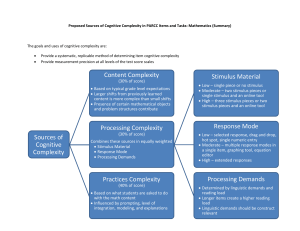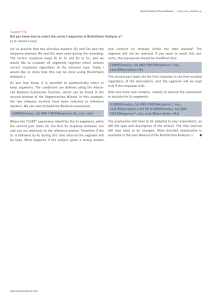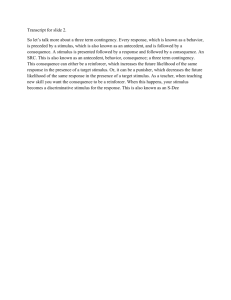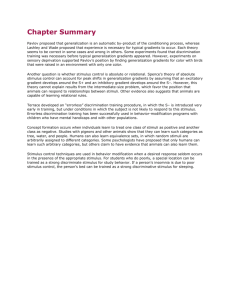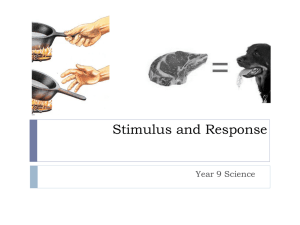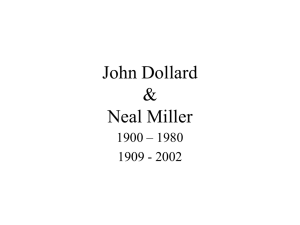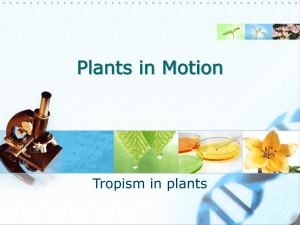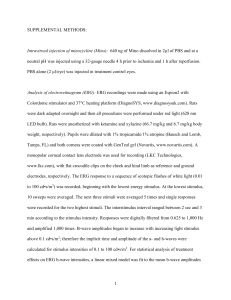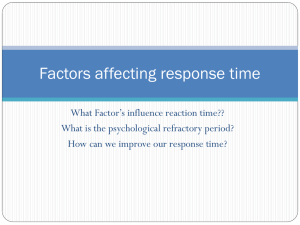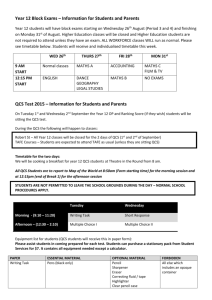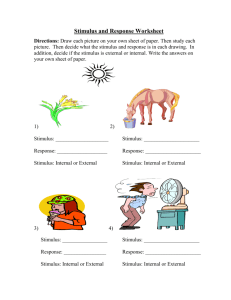QCS Writing Task 2007
advertisement
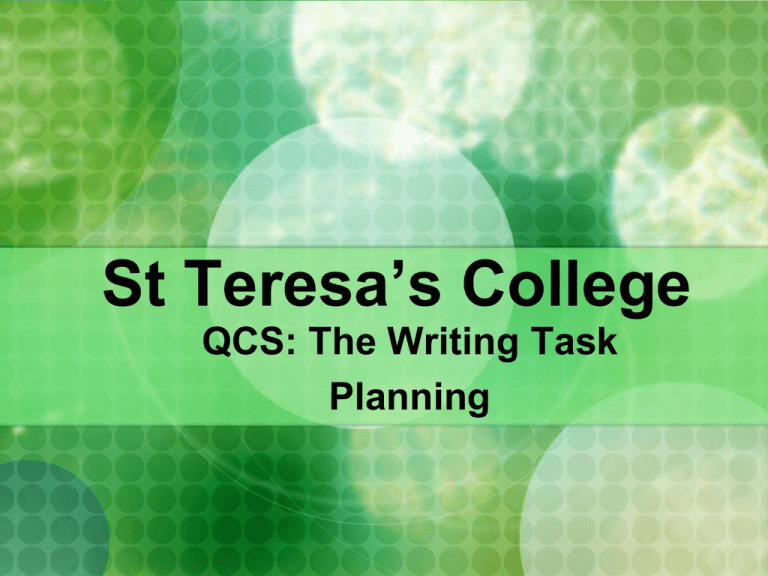
St Teresa’s College QCS: The Writing Task Planning Plan to succeed! QCS Writing Task When: Paper #1 Tuesday morning Duration: 2 hours + 10min perusal Task: 600 word written piece (story, essay, report, reflection) in response to stimulus Contrib. to overall QCS grade: 29% Equipment Allowed Pens (BLACK ink) Pencil Sharper Eraser Correction Fluid / Liquid Paper What do I have to do? Respond to stimulus – use as inspiration Respond in any genre except poetry Brainstorm, plan, draft, edit, rewrite to final copy standard Write one (1) text of about 600 words of continuous prose Planning to succeed A range of rehearsed strategies will underpin success Time management & writing process are vital Brainstorming, planning and time allocation Writer’s block? You can plan your way out of it! General feedback from mighty minds 1. Penalties occur when students write below 500 or over 750 words. All students should aim for 600 words. Work out how many words it will take to fill your task booklet. Writing to page ratios The writing booklet has 30 lines per page. A guideline of how many pages 600 words occupies, based on the number of words per line, is outlined below. Number of w/p/l Approx pages required 6 3½ 7 3 8 2½ 9 2¼ 10 2 11 1 2/3 12 1 1/3 Plan your paragraphs “It is important that students set out their ideas clearly and express them in planned paragraphs.” “Students need to be reminded that it is essential their written responses have a strong connection to the stimulus material.” Plan your strategy Plan to be familiar with at least two fairly different genres. Pick writing styles you have gained success with and are confident in and that you can complete in the 2 hours of the writing task. Work on: Responding to stimulus Tighter sentence structure, avoid too many complex sentences Better use of paragraphing Spelling Punctuation Avoid slang and cliches Use your best vocabulary Why plan a plan of attack? One go at it… It works… Fail to plan, you plan to fail… It is a demanding task: Flair and originality Reflects generic conventions Free of technical errors 2 hours No computer, dictionaries or help Using Your Time Effectively 10 min : 20 min : 30/30 min : 40 min : (Perusal) Planning Draft / edit Final draft Warnings : 30min prior to finish time 10min prior to finish time How is my writing marked? Trained and registered markers Mark according to standards developed for a set of criteria Each response is marked at least three times by different markers working independently There is a process for monitoring marker consistency Plan ahead Read page 18 Review the TICGS scheme on page 19could this work for you? Use the TICGS format on page 19. Plan a response to one of the two examples from page 11-14. Drafting and Editing Read page 20- highlight the key points or areas that you need to remind yourself of!!! (What are your weak points?) The Power of Planning Not even the most gifted writer can sit down and produce a flawless piece without planning Writing - ALL writing - is a process consisting of: brainstorming planning drafting editing proofreading Planning is the key to: effective links to the theme and the stimulus piece a plausible and logically structured response maintaining your sanity. Accepting responsibility for your efforts, this is not a “luck” or personality test. Therefore... … you must allocate blocks of time to each phase of the writing process. Last thoughts… Support one another Work with the process of preparing for the writing task Conquer it and develop a plan to manage the task No luck needed – you make your own good fortune through diligence & preparation Prepare yourself mentally and physically Take responsibility for your results!
